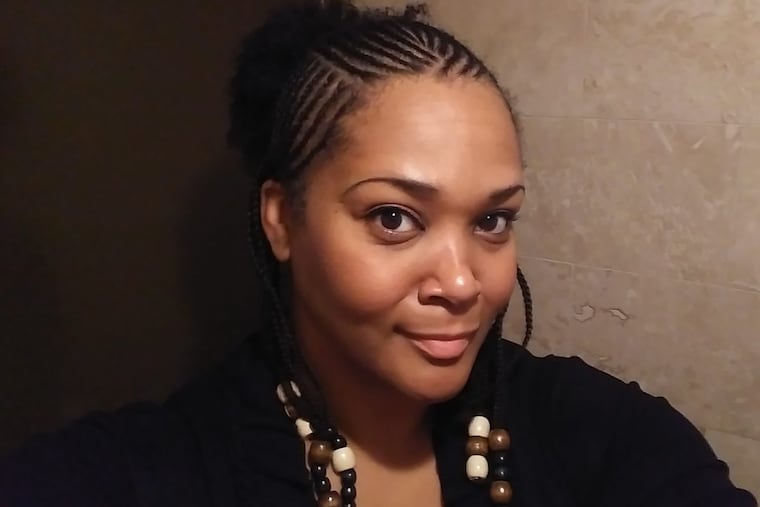Uber, Lyft owe more to female passengers - including the chance to pick their drivers | Perspective
Was our gender identification that strong, our mutual possession of fallopian tubes enough to bridge any racial, cultural, or economic divide that separated us?

As I pulled to a stop late one night last week in central Philadelphia, Adrienne, a young woman in her early 20s, hobbled across the street in a semi-inebriated state to meet me. Her brown hair falling messily into her face, she stared hard at her phone as if focusing were a chore, and then bent low to peer into my car, her gaze glassy but skeptical.
"Kenita?" she asked through the window, as though my profile on her phone was a hoax. When I greeted her, her relief was so familiar, so palpable, one would have thought she'd just shed a 50-pound rucksack from her slim shoulders. Her reaction was understandable in light of the statement she made next.
"Oh, my God! I'm so happy I got a lady Lyft driver," Adrienne declared, plopping down in the back. She punctuated her point by patting my seat, perhaps as confirmation that I really was in the car and not a mirage she had imagined under the influence. I smiled and said, "Yeah, girl, I get it. Let's get you home safe," and set off for her destination.
The truth is, Adrienne had no idea just how much I do "get it." As a part-time Lyft driver who has given nearly 1,400 rides, in my experience for every 10 female passengers I pick up, at least three make gender-based comments in support of riding with me. When I drive at night, I've observed so many faces lighting up when they see me at the wheel, I joke that I should don robes and a halo, the guardian angel of women ride-share passengers.
>> READ MORE: Female cabbies are rare in Philly, but ride-sharing apps have opened new avenues for women drivers.
When I first joined the Lyft community last year, I wondered (naively) what all the excitement was about. Female passengers don't know a thing about me, I don't know a thing about them, and we've never seen each other before. Why did women passengers feel an instant kinship with me? Was our gender identification that strong, our mutual possession of fallopian tubes enough to bridge any racial, cultural, or economic divide that separated us? And were male members of the ride-share community behaving that badly? What was going on? Lyft ran background checks on drivers, provided a rating system, and monitored each ride from start to finish, via GPS. How uncomfortable could ride-sharing be?
The answer caught up with me almost as soon as I turned on the app for my inaugural spin as a driver. In a city replete with big universities such as Penn, Temple, and Drexel, young female college students began sharing their sexually degrading ride-share horror stories with me straightaway. My car a confessional, the scenarios unfold the same way: First, I'm greeted with surprise and relief, and then relief morphs into the saddest justifications, story after story of indecent commentary and lewd treatment.
One passenger told me that a driver, new to Philadelphia, complained he had no friends and wondered if she knew anyone he could hook up with for sex. Another passenger shared that she had been so unnerved by a driver's reaction to her avatar, she later took the photo down. "He wouldn't stop talking about how I looked, even though I made it clear I wasn't interested. I wanted to cancel the ride, but I was scared to piss him off."
And still another shared that once, while falling asleep in the back of a Lyft Line (the app's carpool option), she awoke to a fellow passenger, one completely unknown to her, rubbing her thigh, his hand creeping toward her genitals. When she yelped and told the driver what happened, he gave her an awkward laugh and made no effort to kick the pervert out.
Both Lyft and Uber just announced they would end their policies that forced sexual assault victims to address their cases in arbitration instead of open court. As a driver who sees firsthand the fear female passengers experience as they use ride-sharing apps, I think Lyft and Uber owe the community more.
As a show of solidarity – and as restitution for failing women by hiding sexually abusive behavior from the public via the apps' confidentiality agreement – Lyft and Uber should immediately create an in-app option that gives female passengers the choice to specifically request female drivers. The number of assaults would plummet instantly, signaling the important role women drivers play in safeguarding the dignity of women passengers.
Kenita Jalivay is a Philadelphia-based writer and literacy activist. She drives part-time for Lyft.